Selfdustructive bisexual maniac. Psychogenic depressive alcoholic dissociative disorder suffering freak.
Last active 3 hours ago
Don't wanna be here? Send us removal request.
Text
Imagine a world where creationism was unanimously central both to the ruling class's conception of self and to the logic that justifies their power. Darwin's work still exists, attempts to suppress it outright would only drive interest; curious and rigorous scholars who've sought out his work can testify to its quality and relevance, and often teach natural selection in their courses. Still, there remains an understanding that Darwin is not what the people with money and power want to hear, and so when proposing research grants or attempting to climb the academic ladder, Darwin is typically ignored in favor of alternative theoretical frameworks which, while less useful, are far more likely to receive funding.
This creates a cycle where, because Darwinism has been ignored in all of the most influential and groundbreaking research, it becomes inessential. Scholars can receive their PhDs without ever having read a single work on natural selection. Despite its utility as a theory, intuition and an implicit trust in the social reality created by and within these institions creates the sense that Darwinism is, to put it bluntly "crank shit," the sort of thing you study to amuse your own curiosity and stroke your ego rather than actually trying to change the world.
Of course, none of this changes the fact that Darwin was correct, that evolution by natural selection is the primary mechanism by which species develop and change over time. However, since using Darwinist theory (or any alternative routes taken to similar models and conclusions) as anything but a garnish will get you labeled as a crank, the entire discipline of biology becomes warped around its absence. Entire fields form to cobble together makeshift solutions to the gaps Darwinism fills, further cementing it's irrelevance. Thousands of scholars devote their lives to fleshing out the forest of asterisks and duct tape holding on a vastly overstretched lamarckian and at times implictly creationist framework.
From the outside, the discipline begins looking absurd. Clearly driven by internal politics, sprawling in a million directions without any consistent underlying theory, shy on results. Despite billions pouring in year after year trying to answer some of the most fundamental questions about humanity, history, health, all lines of inquiry seem to eventually terminate in a shrug of "life is complex, how could we hope to understand everything about it?"
Okay now switch Darwin with Marx. This is the state of contemporary western social science.
4K notes
·
View notes
Text
I think a big reason why tech people keep Inventing the Torment Nexus so to speak is that the people who are most influential on the overall attitudes and goals of the tech business are not actually programmers or engineers, they're philosophers who have read a lot of science fiction and think that makes them qualified to speak on programming and engineering from a birds-eye long-term perspective. The entire transhumanist/rationalist world revolves around assuming that a bunch of shit from scifi will inevitably come true and that our goal as a species should be to make sure all this dystopian sci-fi bullshit is as beneficial (in the capitalistic sense of that word) as possible. No one cares about solving actual problems facing real people in the present day because they're only concerned with future problems caused by fictional technologies that will probably never actually exist.
1K notes
·
View notes
Note
heyo- a friend is trying to get me to read 1984 because 'it'll totally change your worldview on government and anarchism', but i've heard some bad things about the book itself/george orwell. should i read it? is there anything similar/more theorylike i could read instead?
thank you! your blog rocks <3 <3
Go ahead and read it if you want. It's a classic entry into the genre of dystopian science fiction and it has spawned many imitators since its publication. However, if you're looking for actual theory or history, you won't find it there. I would recommend Pat Sloan's "Soviet Democracy" or Anna Louise Strong's "The Soviets Expected It" and "The Stalin Era" if you want real accounts of the Soviet Union under Stalin.
Orwell never actually visited the Soviet Union, and 1984 is based not on his own personal experience with the country but instead on Western propagandistic views of the country and his own displeasure towards the fact that during World War II, when the UK and the USSR were allies, the British press was much less keen to publish anti-Soviet works right at the same time he was trying to get Animal Farm published. You must also understand that his wife worked for the UK's Ministry of Information as a censor and Orwell himself worked at the BBC producing wartime propaganda. It is not a coincidence then that the main character of 1984, Winston Smith, is a censor and propaganda official working with the fictional "Ministry of Truth" and eventually finding himself battling against state control of information.
Ironically, after stylizing himself so much as a defender of liberty and freedom against the "totalitarianism" of the time, Orwell would write up a list of alleged subversive writers for the British Information Research Department, a secret department tasked with publishing anti-communist propaganda during the Cold War. Some of this propaganda would end up being a comic strip version of Orwell's Animal Farm. There is a significant throughline in both Animal Farm and 1984 that clearly betrays Orwell's political views. In both works, the proletariat are depicted as nothing more than idiots and sheep who follow the orders of anyone willing to give them work and are easily duped by intellectuals. In 1984, he phrases it as the proletariat being more "free" simply because they're so insignificant as to warrant no government surveillance.
In 1984, the fictional society of "Oceania" is a far cry from a dictatorship of the proletariat. The proletariat have no political power, they all live in slums and are mollified by bread and circuses. How is the building of the slums organized? Where does the money go when one buys their bread? We are not told anything about this except that the process is slow and inefficient. The story isn't interested in material concerns. The "proles" do their work, we are told, but we are never shown much more than informal labor. We don't know who is telling them to work or how they are getting paid. The "Outer Party" is supposedly the white collar "middle" class of Oceanic society, but despite the amount of focus the story has on this class, we are never shown a single Party member managing a workplace or poring over receipts. We are to believe that the proletariat are simultaneously left to their own devices and unmolested by the state, while also completely under the control of the state through invisible mechanisms that are never elaborated upon. While Winston will complain endlessly about his own quality of life, not once does a single prole gripe about their job. The cost and quality of goods come up sporadically and only to illustrate the deterioration of English society under Party rule, never to illustrate any material basis of said rule.
Even more at the periphery are the colonized peoples (although never described as such) within the war-torn areas never under the permanent control of any world power. All three of the global superpowers are said to be in a constant struggle over the control and enslavement of these super-exploited workers and the resources of their nations, which are said to make up a significant proportion of the material resources of each superpower, however at the same time they are not considered to be part of the proletariat and are dismissed as entirely disposable and unnecessary for the maintenance of any of these superpowers. To Orwell, it seems, colonialism is simply a thing the colonizers do out of habit and not a phenomenon with an actual material basis or actual material effects. In turn, the colonized are not actual people who might take umbrage with the constant conflict imposed upon them, but rather chattel that is perfectly content to be traded back and forth among the colonizers.
The importance of the middle class in society is a recurring theme in 1984. For example, the Trotsky-esque political treatise Winston reads within the story, "The Theory and Practice of Oligarchical Collectivism", begins with a twist on Marxist historical materialism - while it recognizes the role of class conflict in human history, it asserts a transhistorical narrative of the eternal existence of three separate classes within society since "Neolithic times": the upper, middle, and lower classes. It is then asserted that it is the middle and only the middle class that is ever revolutionary, and that when it appeals to the lower classes it does so only to use them as a cudgel against the upper classes and never out of a genuine concern for their wellbeing. The treatise, idealistic as it is, provides little definition of these classes. The lower classes are described as "crushed by drudgery" and in a constant state of servitude that places them incapable of achieving political consciousness, something reserved solely for the upper and middle classes. The upper class is defined simply as the "directing" class, and the middle as the "executive" class. The identity of the middle class within Oceania is made clear: they are the "Outer Party", the white collar intelligentsia and managerial class which Winston and Julia belong to. One must assume Orwell viewed himself as a member of the middle class as well. If this section of the book is at all reflective of Orwell's own views (and to be clear no part of the book refutes this outlook,) then Orwell's rejection of Marxism-Leninism is rooted in his view of the vanguard party as simply a mechanism for the intelligentsia and bureaucrats to trick the stupid proles into overthrowing the bourgeoisie, rather than as a genuine means of proletarian liberation.
The politics of the Party are entirely idealistic in nature. "Big Brother" dominates through control of ideology and speech. The goal of Ingsoc, the ruling ideology of Oceania, is to make dissent impossible through the thorough alteration of language and the removal of words which could represent ideas that are not in line with Ingsoc, a process called "Newspeak". It is explicitly stated, however, that none of this ideological control is directed towards the proletariat, which is said to make up 85% of Oceania's population. The proles are not expected to learn Newspeak, they are not monitored by the telescreens, because as is stated quite frankly in the book, "the masses never revolt of their own accord, and they never revolt merely because they are oppressed." That this line is given by the villain of the story is unimportant, because the story never refutes it.
While Winston routinely repeats his belief that "hope lies in the proles", he is consistently met with scenes that challenge his faith whenever he winds up interacting with the proletariat. His conversations with proles reveal their total lack of concern with politics or history. He hears a crowd erupt into chaos and briefly hopes it's the proletarian uprising he is waiting for, only to find it's simply a riot over consumer goods. They are more than once compared to animals. While it is said in exposition that intelligent members of the proletariat who might end up fomenting dissent are eliminated, this is never actually depicted. We don't see Winston meeting with a single intelligent and politically conscious prole. The most intelligent prole he meets turns out to be a secret member of the "Thought Police". And so, the concept remains theoretical.
Winston is depicted as an ardent materialist, desperately defending the notion of external reality against deranged idealists who believe that through control of thought, control of reality becomes possible. But the world he lives in is not material. It is fictional, of course, but more than that, the fictional world described operates on idealistic principles even from Winston's own perspective. Winston's worldview is a faith based one, appealing not to any material basis for liberation but purely to emotion. It is love and the spirit of humanity that is the basis of freedom, and material freedom springs forth from it. Anyone who thinks otherwise is merely a trickster trying to control the masses.
Orwell rejected the material basis of history because he rejected the idea of a revolution on a material basis. To him, the revolution must be an ideological one, and the problem lie not in how society and the economy are organized but in the existence of hateful "authoritarian" ideologies governing the world. He believed the material basis was already here, that industry alone was the solution to material inequality, and so we must concern ourselves now only with the idea of equality and freedom, and from an abstract and universal viewpoint to boot. It is intolerable to him that a revolution be fought against an actual enemy in the real world. The problem is not that the capitalists are in control of the means of production, the problem is that the workers are too stupid to disobey them. A real revolutionary class would spontaneously throw off its own shackles through thought alone. It doesn't matter that Orwell was a lackey and a snitch, because in his mind he was freer and smarter than everyone else.
The bravery of Winston Smith was in recognizing the existence of a material reality that lies and propaganda could never destroy even while being tortured into believing such absurd notions as "two plus two equals five". But Orwell was never tortured into any of his incorrect beliefs. His incorrect beliefs stem purely from accepting the official narrative that he was fed and refusing to investigate its veracity for himself. Orwell's writing was used as propaganda against the designated enemy of the UK throughout the Cold War, adapted countless times in the forms of radio plays, TV shows, movies, and comic books. He never made an effort to actually travel to the Soviet Union to find out if what he was told about the country was true. All the other upper middle class "left-wing" intellectuals he hung out with seemed to be just as concerned as he was with the rising tide of "totalitarianism" and the supposed excesses of the Soviet Union, so why shouldn't he agree? He was in this regard no different than the Western "socialists" of the modern day who have no shortage of vitriol towards China or North Korea. Yes, he might performatively rail against chauvinism and nationalism, but only enough to ensure that he wouldn't be seen as a conservative. He still knew in his heart that his country was surely better than those barbarous communists in the East.
Yes Orwell was sexist and homophobic, and despite his best efforts he remained plagued by racist and antisemitic attitudes, but in addition to all that his books promulgated a view of the world entirely in line with British bourgeois values, which is why they were so eagerly used as propaganda by the British government. The Nazis were bad and the Soviets were bad because they were both authoritarian, and the differences between them were negligible and unworthy of mention. The references 1984 makes to the shifting alliances in Oceania, "we are at war with Eurasia" becoming "we are at war with Eastasia" and vice-versa, are most likely allegories for the shifting alliances of Britain at the time, how they viewed the Soviets as an enemy before the war, as an ally during the war, and as an enemy again once the war was over. Orwell viewed himself as above all of this simply because his view of the Soviets never changed at any point throughout this.
225 notes
·
View notes
Text
Actually cannot stop watching this
119K notes
·
View notes
Text
we need to kill every single police officer and all of their family members as well
26 notes
·
View notes
Text
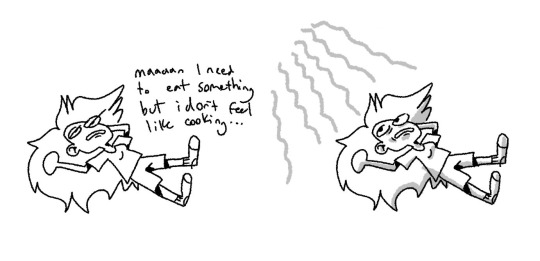
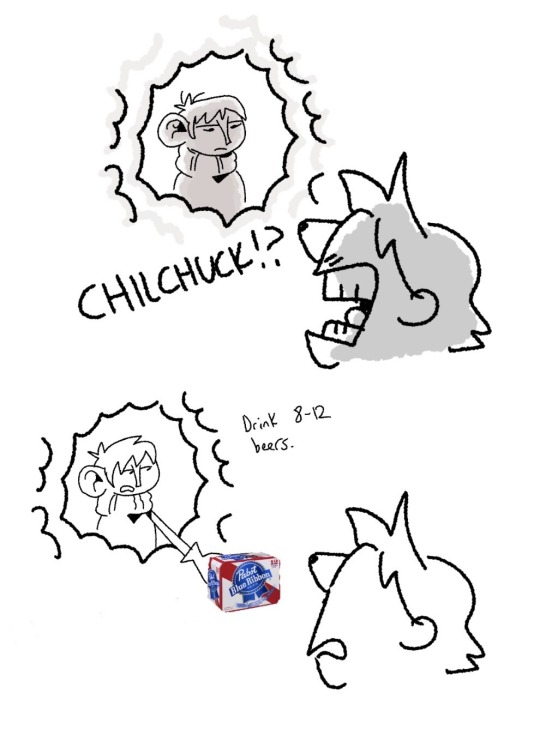
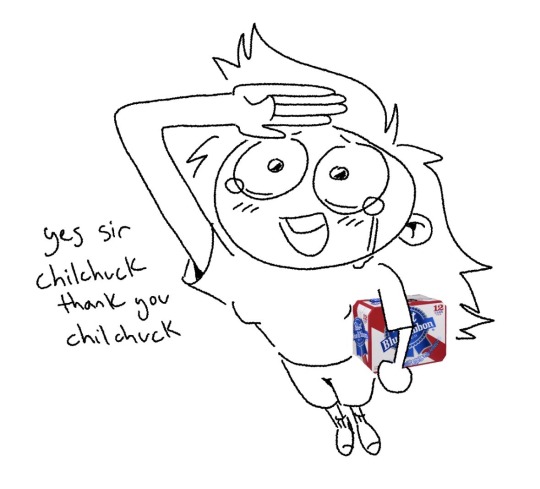
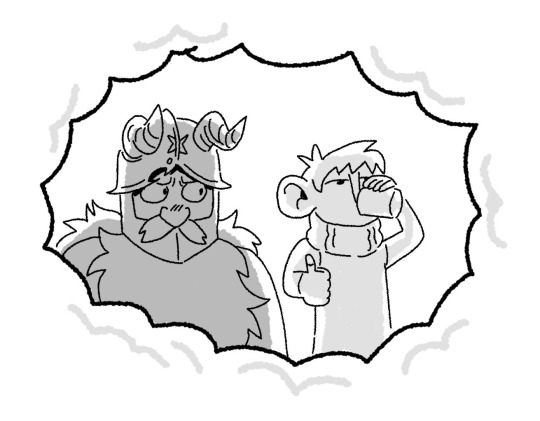
Yknow how people say they picture senshi and it helps them cook? I think I’m doing something wrong (DO NOT DO THIS)
128K notes
·
View notes
Text
I asked my friends on Discord if they used "psipsipsi" or "swswsw" when they are trying to call kitties, and I got a wide array of answers and it got me wondering--
How do you
Thank you to @space-glitter-gay, @frogs-under-logs, @justoneofthosebibliophiles, and Virginia for the blessing and the other options!
And to thank you for your answer, here's a photo of our adopted kitten:

14K notes
·
View notes
Text
"I would die for you, I would kill for you" okay but would you live for me. Would you go outside and watch the birds go by for me. Would you breathe in the air and savor it and think about how it tastes just that little bit sweeter for me. Would you stop self deprecating for me. Would you love yourself for me.
3K notes
·
View notes
Text
guys the consequences of inaction are noooootttt enough to motivate meeee
72K notes
·
View notes
Text
The biggest scam your brain is telling you is that everybody else is human and allowed to make mistakes but that you yourself have to be perfect and flawless to deserve their company
193K notes
·
View notes
Text
wait i can abuse substances instead of feeling things
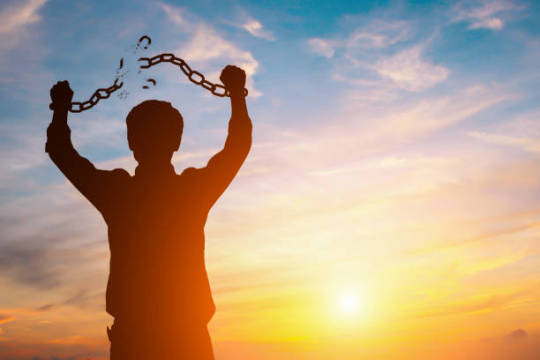
33K notes
·
View notes
Text
Every single moment, I'm holding my annoying form you couldn't possibly imagine
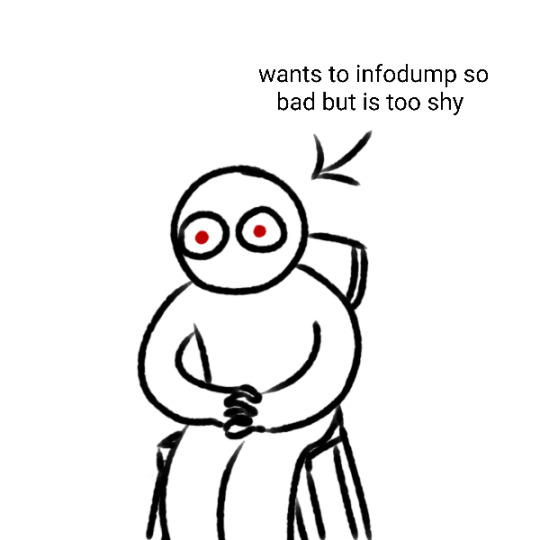
drew a constant mood on the mind
126K notes
·
View notes
Text
you ever feel like you were born with something rotten inside you and if people get close enough they’re gonna find out
187K notes
·
View notes
Text
this article is behind a paywall but i'm obsessed with the headline + photo combo

140K notes
·
View notes


